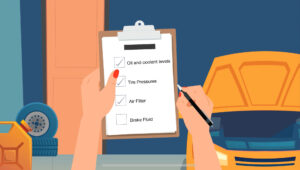We all know that one of the most important things about maintaining your car is to get regular oil changes. But why if it so important? Oil in the one ingredient in your car’s complex engine system that keeps all of the little parts running at peak performance. Oil functions in several different ways: lubrication, protection, cooling and cleaning to name a few.
Think about how we use cooking oils to make sure our ingredients don’t stick to the pan. Well, automotive oil acts in a similar way. With your car’s engine components made from metal, oil acts as a lubricator to minimize friction. Too much friction within the engine can cause it to wear down faster and cause additional damage.
Another side effect from friction is heat. If your engine components aren’t properly lubricated, – causing more friction – then things will likely start to heat up. We all know that when you rub two sticks together you can create a fire – well we don’t want that happening in your engine. Oil will help all of those components run more smoothly and keep those internal engine temps down.
Synthetic Oil vs Non-Synthetic Oil
Not all oils are the same and not every car needs the same type of oil. The best way to see what your car needs is through your car’s manual, and then you can assess the different types of oils from there.
Synthetic oil typically is a higher quality oil that increases the protection on your car’s engine. For all of the reasons stated above why we need oil, synthetic oil helps with that at a much higher level. Synthetic oil is made to help balance your car’s engine temperature in all different types of climates. If you tend to put more miles on your car each year, synthetic oil may also be more beneficial for you. If you have a car with a turbocharger in it, typically synthetic oil will be a better choice. Turbos can produce a lot more heat than non-turbo cars and synthetic oil is created to withstand and perform better under more extreme heat.
But, of course, with a higher quality product, you will likely pay a bit more as well. And this is not to say that non-synthetic oil won’t do the trick. Non-synthetic oil will provide you with all of the same benefits that synthetic oil will but at a much more affordable price point.
How often do I change my oil?
According to Mobile Pitstop, you should change your oil every 4,000-8,000 miles depending on the type of oil you are using – synthetic oil changes can last up to 8,000 miles while it’s recommended that non-synthetic oil users get oil changes closer to every 4,000 miles. This is to ensure that you are keeping up with the maintenance of your vehicle to keep it performing at the highest level possible. Of course, if you put more miles on your car you may need to consider getting oil changes more often.
Another thing to keep in mind is to monitor your oil level. This is an easy check under the hood of your car through the ‘dipstick.’ To check this, first make sure your car is parked on level ground (if not, this can skew the oil level and how it sits in your vehicle). Find the dipstick and pull it out. Take a paper towel or rag and remove any oil on the end of the dipstick and then put it back in. Remove it once again and check to see where the oil hits on the end of the dipstick – reach dipstick should have a marker for a proper oil level.
Have questions or want to book your next oil change? Head over to https://www.mobilepitstopvan.com/bookings/ or the Mobil Pitstop App to make your appointment today!





1 thought on “Everything You Need to Know About Your Car’s Oil”
Im very pleased to find this site. I need to to thank you for ones time for this particularly fantastic read!! I definitely really liked every part of it and I have you bookmarked to see new information on your site.